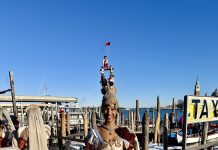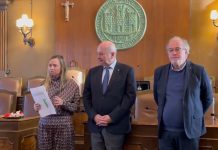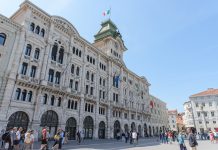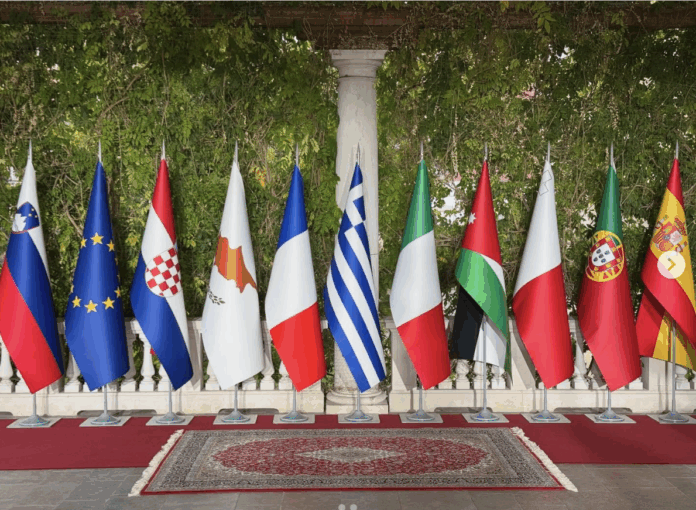by InTrieste
All eyes this morning were on the Slovenian coast where European and Mediterranean leaders met in the seaside town of PortoroĹľ for a high-level summit focused on economic competitiveness, the crisis in the Middle East, and regional cooperation.
The meeting, known as MED9, brings together nine Mediterranean European Union member states: France, Spain, Greece, Portugal, Malta, Cyprus, Croatia, Slovenia, and Italy. Created in 2013, the group serves as an informal platform for coordination on key issues affecting the EU and the Mediterranean region.
This year’s session marks the culmination of Slovenia’s presidency of the group, with Prime Minister Robert Golobhosting what his government has described as one of the country’s most significant international events in decades. European Commission President Ursula von der Leyen and King Abdullah II of Jordan joined the discussions, underscoring the meeting’s wider geopolitical relevance.
At the center of the talks was Europe’s economic competitiveness, with leaders seeking common ground ahead of next week’s European Council summit. The situation in the Middle East also dominated the agenda, particularly discussions on implementing a peace plan for Gaza. A joint declaration by the Mediterranean countries, as well as a shared statement with Jordan, is expected later today.
Italy was represented by Foreign Minister Antonio Tajani, who addressed the recent temporary suspension of the Schengen Treaty along the Italy–Slovenia border. Tajani described the move as a response to global security concerns.
“The suspension of the Schengen Treaty at the Italy–Slovenia border is tied to the international situation, to prevent potential infiltrations by terrorists among those fleeing war zones,” Tajani said. “The work is being done with great intelligence and discretion, without causing major inconvenience to civilians. I hope this suspension can end soon, but that depends on external factors, not on Italy’s will.”
Tajani also praised the close ties between Gorizia and Nova Gorica, the two cross-border cities that will share the title of European Capital of Culture in 2025, as a model for European unity.
“The relationship between Gorizia and Nova Gorica shows that we must leave the horrors of the past behind and look to the future,” he said. “Europe allows us to tear down cultural, ideological, and political barriers, ensuring that such tragedies never happen again.”
Security was tight across PortoroĹľ throughout the day, with police escorts accompanying delegations and traffic restrictions in place.
Adding a note of diplomatic intrigue, Italian Prime Minister Giorgia Meloni, who had initially been expected to attend, was represented instead by Tajani. While official reasons for her absence were not provided, Italian media suggested it may be linked to French President Emmanuel Macron’s state visit to Slovenia, scheduled to begin this evening in Koper and continue Tuesday in Ljubljana.






























